Help plants and animals grow better with broth powder!
(Baonghean) - After many years of receiving support for iodized salt and seasoning powder, many poor households in disadvantaged areas cannot eat it all and no one buys it.
On August 7, the Prime Minister issued Decision 102/2009 on Direct Support Policy for Poor Households in Difficult Areas, according to which each poor household in the districts under Resolution 30a of the Government will receive special support policies. However, after nearly 10 years of implementation, this policy has revealed many shortcomings.
Salt can be eaten for 3 years without running out
According to Decision 102/2009/QD-TTg dated August 7, 2009 of the Prime Minister on direct support for poor households in difficult areas, poor households in area 30a, in addition to receiving specific support policies such as rice, plants, seeds, iodized salt, also receive cash support. Accordingly, each locality will depend on the application and practical needs of the people to have necessary support policies for each poor household. "However, the amount of cash that each poor household receives is only 100,000 VND/household/year, so it cannot help people increase production or solve other urgent problems," said Mr. Lo Minh Diep - Head of the Department of Labor, Invalids and Social Affairs of Que Phong district. Therefore, each locality will use its own funding sources to have more effective support. “From 2010 to 2016, we bought rat manure and supported poor households with breeding animals, but then, following the province's policy, from 2017 we switched to supporting iodized salt and seasoning powder,” Mr. Diep added.
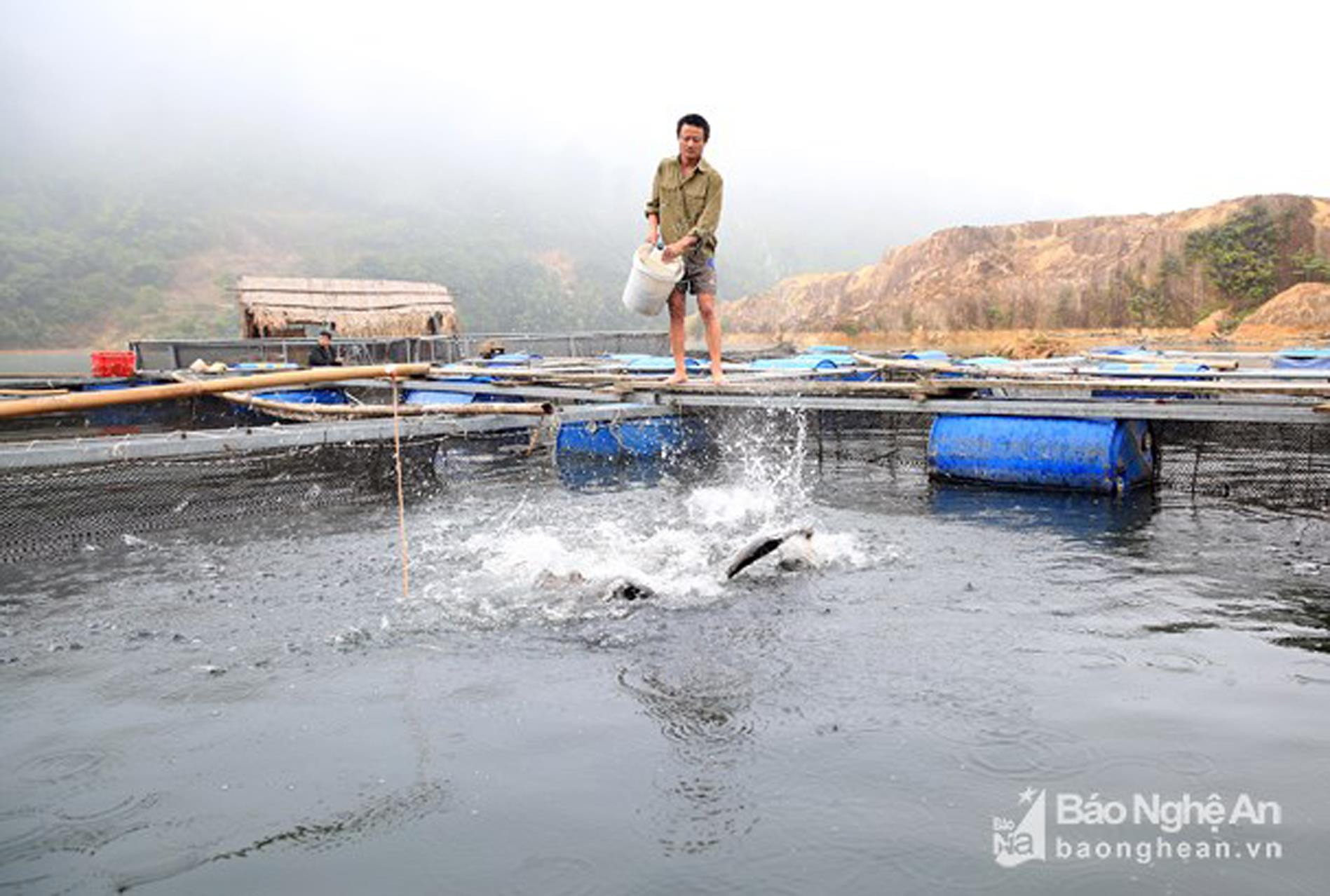 |
| People in Dong Van commune (Que Phong) raise fish in cages in the Hua Na Hydropower Reservoir. Photo: Contributor |
The salt support policy comes from the implementation of Decision No. 2709/QD-UBND dated June 22, 2017 of the Provincial People's Committee on approving the budget estimate and organizing the implementation of the policy of direct support for poor households in difficult areas. Accordingly, each poor household in the mountainous districts will be supported with salt per person; each person will receive 5 packs of iodized seasoning powder and 3kg of iodized salt.
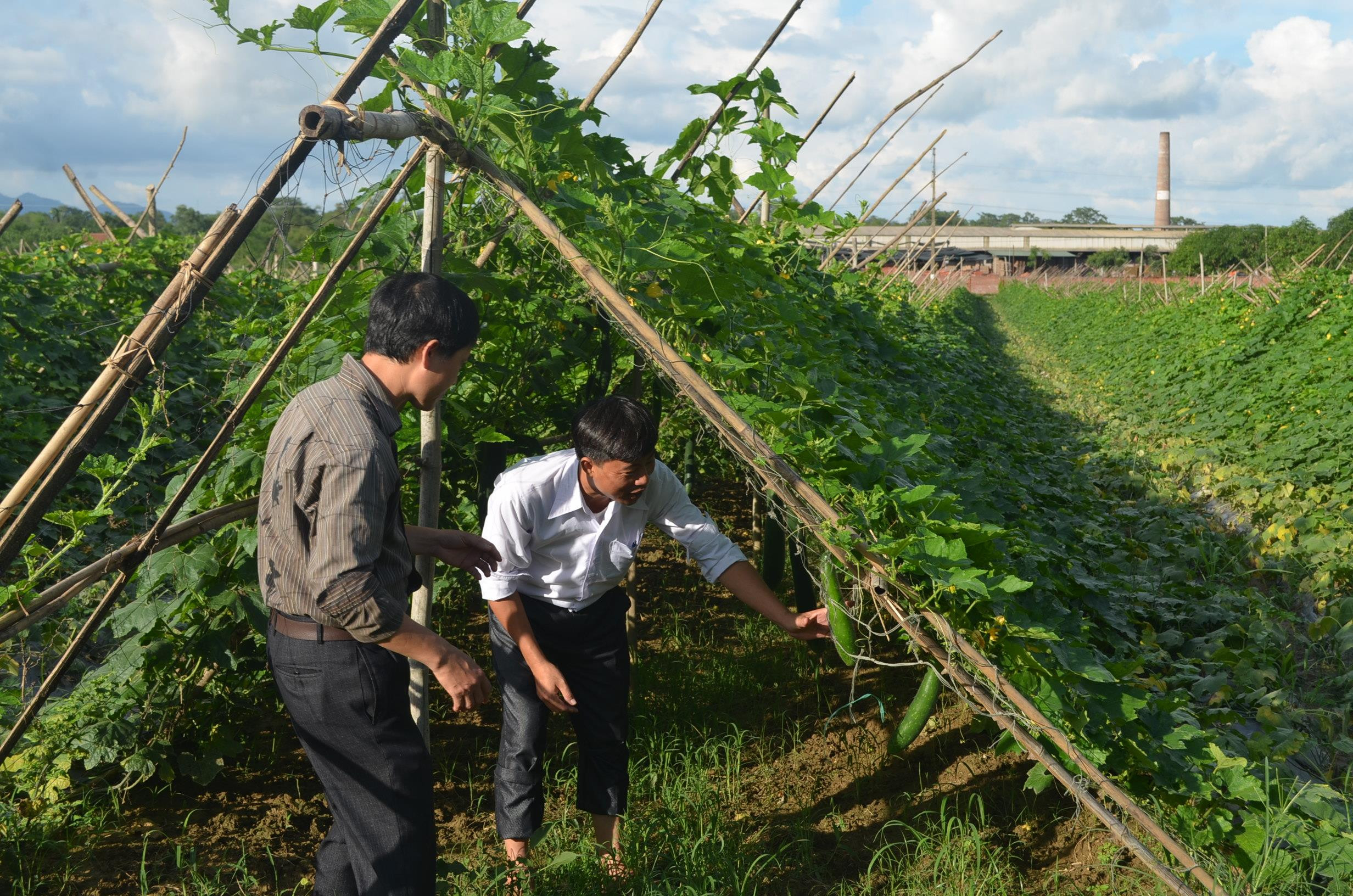 |
| Production model using Israeli technology in Cam Son commune (Anh Son). Photo: Contributor |
"The whole commune has 456/1174 poor households with a rate of up to more than 38.8%, many households have up to 10 people, so the amount of seasoning powder that the commune received this year is a lot. In previous years, the commune received iodized salt but many households did not use it all."
According to the Head of the Department of Labor, Invalids and Social Affairs of Que Phong District, Lo Minh Diep: With the amount of salt left over from last year, combined with the amount of seasoning powder this year, many households will still have enough left over for several years and may not be able to use it all. With only 100,000 VND in support money, it is best not to support salt and seasoning powder but to support people with plants and seeds.
For example, in 2016, Cam Muon commune used this fund to buy duck breeds to support the people, from which many households expanded their livestock, initially escaping poverty. Or before 2017, the district bought bamboo rat manure to support people in farming. This policy was very much supported by the people, because if only 100,000 VND were given to the people, they would spend it all immediately and would not be effective in supporting poverty reduction.
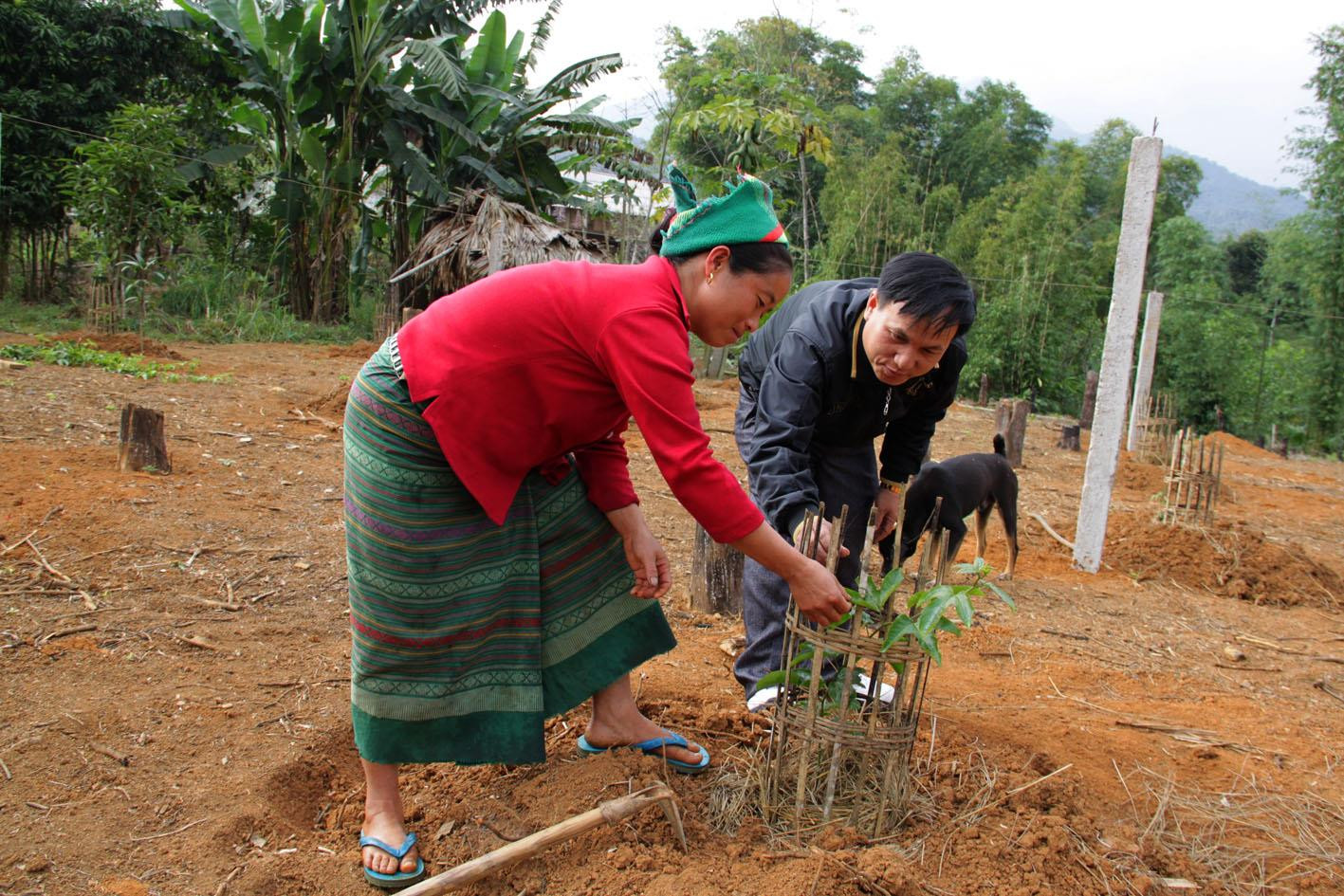 |
| Technical instructions on passion fruit care for people in Tri Le commune (Que Phong). Photo: PV |
Eliminate direct support to increase indirect resources
According to reports from relevant sectors, in 2018, the province supported poor households in regions II and III with cash support of up to VND23.9 billion. Each household in region II will receive VND80,000/year; each household in region III will receive VND100,000/year.
In 2018, 211,274 poor households in Region II and Region III were granted support funds totaling more than 19.4 billion VND, including items such as salt, seasoning powder, plants, livestock, and fertilizers. A representative of the Provincial Ethnic Minorities Committee said: "This funding source is mainly allocated for the purchase of seasoning powder and iodized salt to help people have a source of iodized salt and to select a practical list of support according to the suggestions in Decision 102/2009/QD-TTg".
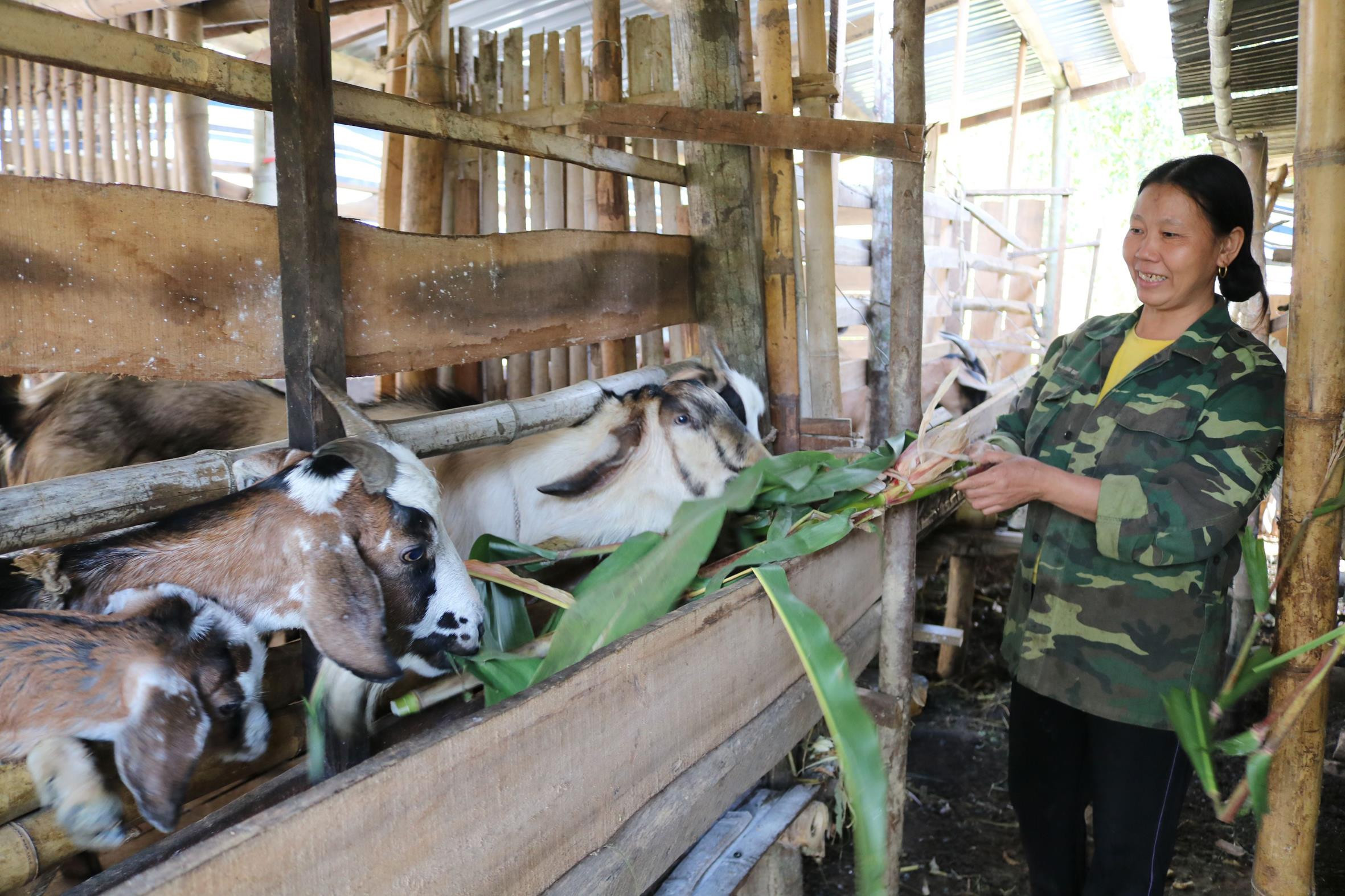 |
| Goat raising model of Dong Tram parish, Hung Son commune (Anh Son). Photo: Huyen Trang |
However, from this source of support, most people in poor communes still cannot improve their current lives. Mr. Lang Van Tan's household in Cam Muon commune (Que Phong) has been a poor household for many years now. Although he has received many preferential policies from the state, such as salt, seasoning powder, fertilizer, and cash support on holidays and Tet, his family is still in poverty, lacking food and clothing all year round. Through investigation, it is known that the reason is that the family has many children but none of them are of working age, and many of them are often sick. For Mr. Tan's household, to escape poverty, there needs to be a "boost" in economic development, such as expanding livestock farming and increasing the herd of cattle and poultry.
"In my opinion, instead of providing small-scale support, which is fine if you have it or not, we should combine support into a more practical model."
According to Mr. Diep, currently in Que Phong district, there are many economic development models that have been replicated from poverty reduction support policies such as the model of raising ducks, caged fish, goats and cows in Cam Muon commune, the passion fruit model in Tri Le and Nam Giai communes, and growing medicinal plants in Nam Nhoong... Therefore, according to Mr. Diep's opinion, we should abandon the direct support policy to combine it into a large resource to support more effective models.
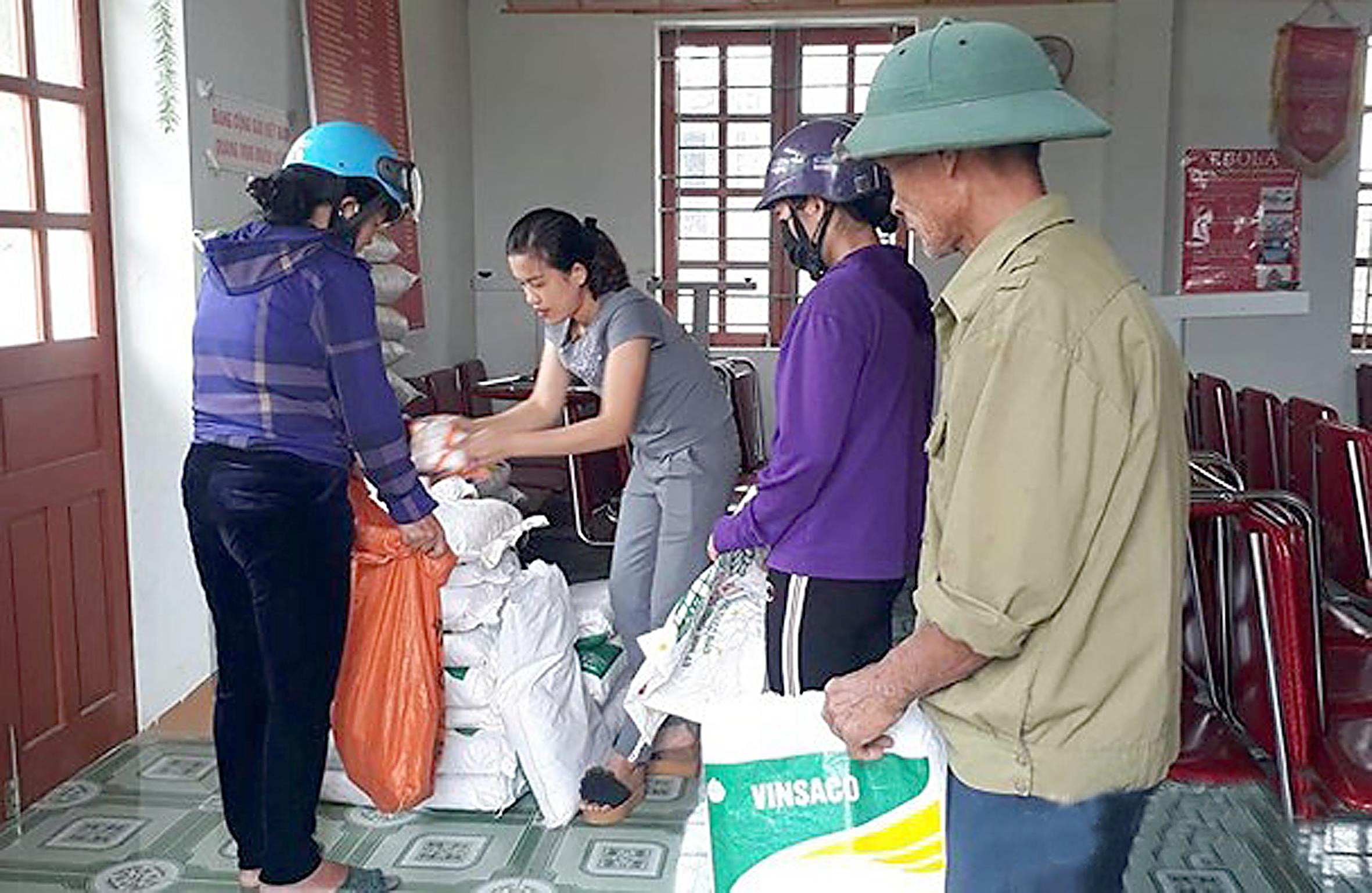 |
| Implementing iodized salt support for the poor. Photo: PV |
“On June 6, 2018, the Prime Minister issued Decision No. 25/2018/QD-TTg abolishing Decision No. 102/2009/QD-TTg, thereby reducing the free support policy, increasing the conditional support policy associated with the beneficiaries, locations and duration, increasing the opportunities to access the policy and encouraging the active and proactive participation of the poor; prioritizing increasing investment resources for the development of areas with a large number of ethnic minorities, poor districts, poor communes, communes and villages with special difficulties...
However, currently, localities in Nghe An are using the budget that has been stably arranged in the regular expenditure estimates for the period of stabilizing the local budget 2017 - 2020. Therefore, in order to support poor households in a practical manner, localities need to have a flexible mechanism to apply this budget to develop economic development models at the grassroots level to help households escape poverty sustainably," said Mr. Le Van Thuy - Head of the Department of Labor, Wages - Social Insurance, Department of Labor, Invalids and Social Affairs.
Mr. Hoang Xuan Luong - Member of the National Assembly Committee's Poverty Reduction Policy Monitoring Board: "If we concentrate all direct support policies to build indirect support sources together with many other resources, it will be more effective. Direct support in fact also costs hundreds of billions of VND each year but does not help the poor reduce poverty, on the contrary, it makes them wait and rely. Each unit and agency that receives support for poor communes, in addition to supporting resources, needs to hold hands and guide them to help the poor develop their economy. Or instead of supporting small items and gifts, businesses, organizations, and philanthropists need to combine them into a more effective form of support. The main thing is to help the poor know how to rise up and escape poverty sustainably with the "leverage" of policies, not just waiting for support."


